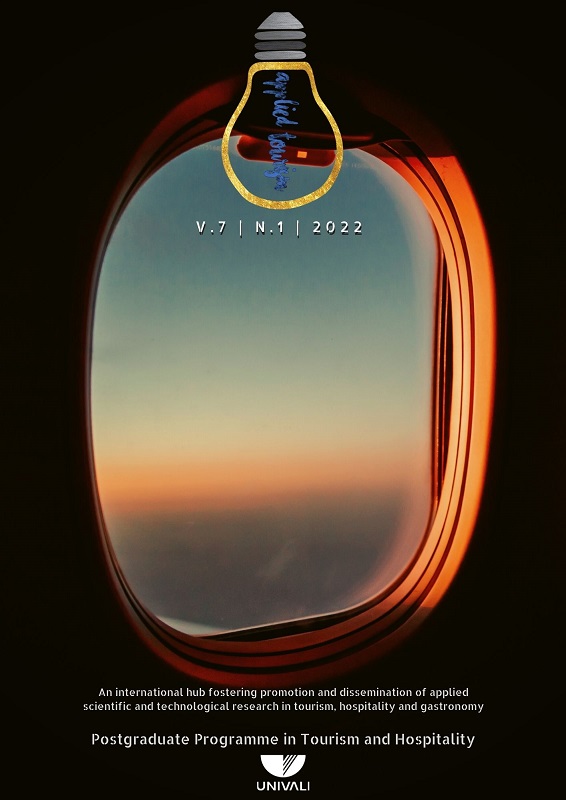

This report describes the daily routine of the Sateré-Mawé Indigenous Women’s Association (AMISM) in the context of the Covid-19 pandemic. The predominant activity of the Association is producing indigenous handicrafts, but with the pandemic, its members had to find strategies for maintenance and survival, faced with the humanitarian health crisis and the consequent economic impacts on the group's activities. This is a case study with an ethnographic approach that also dialogues with university extension guidelines (2018). The experience was attended by members of the association and a student from the Production Engineering course at the Universidade do Estado de Amazonas (UEA), who was a resident of the community and a participant in the extension project. Interviews were used to gather data, through communication technologies such as WhatsApp. Secondary data were collected through the City of Manaus newspaper. Through this experience, it was observed that the AMISM has reinvented itself in relation to its planning and productive organization, producing face coverings and protective products from the forest, turning to the sustainable axis in the preparation of alcohol-based hand sanitizers mixed with aromatic herbs, with the knowledge and aromas of the forest, based on knowledge passed down from the ancestors. To this end, the Association appropriated the social networks Facebook and Instagram, to promote and sell its products to tourists and residents. In the field of egalitarian work, the UEA contributed by giving social returns to the community, through its extension activities, and by reaffirming the role of the student in training, in an integral and responsible way, faced with the emerging problems of the 21st century.




Acselrad, Henri. (1999). Discursos da sustentabilidade urbana. Revista Brasileira de Estudos Urbanos e Regionais.
Amazonas. Imprensa Oficial. Available at: https://e-diariooficial.com/diario-oficial-do-estado-doe /amazonas/ ?gclid=CjwKCAjwkun1BRAIEiwA2mJRWcCvWyY4 nufNN2iIOzFAvQ34jO 2_ 3gTvlI1Akw2d-r7-r8tt-RdxNxoCPPkQAvD_BwE. Accessed on: May 12, 2020.
Bardin, L. (2016). Análise de Conteúdo (3 ed.). Edições 70.
Carvalho, Joelma Monteiro de. (2019). Ritual de passagem: das terras indígenas às áreas urbanas dos Sateré-Mawé. Manaus, (AM): editora UEA. E-book. Available at: repositório institucional.uea.edu.br/handle/riuea/1566. Accessed on Feb. 25, 2020.
Creswell, J. (2010). Projeto de Pesquisa métodos qualitativos, quantitativos e mistos. Tradução Magda Lopes. 3ªed. Porto Alegre: Artmed.
Geertz, Clifford. (2008). A interpretação das culturas. 1.ed. 13 reimp. Rio de Janeiro: LTC.
Clarín. Brasil: de las artesanías a los barbijos, cómo sobreviven al coronavirus los indígenas del Amazonas. Available at: https://www.clarin.com/mundo/brasil-artesanias-barbijos-sobreviven-coronavirus-indigenas-amazonas_0_9_XOH3lsH.html. Accessed on May 13, 2020.
Matos, Maria do Socorro Paço de. (2003). O olhar das mulheres Sateré-Mawé sobre o lixo. Dissertação. Mestrado em Sociedade e Cultura na Amazônia. Programa de Pós-Graduação em Sociedade e Cultura e Cultura. UFAM: Manaus.
Universidade do Estado do Amazonas. (2020). Nota técnica Covid-19, n.º 002 28/04/2020. Disponível em: http://www.sedecti.am.gov.br/enfrentamento-ao-covid-cientistas-contribuem-com-estudos/. Accessed on: May 18, 2020.
Olsen, Wendy. (2015). Coleta de dados: debates e métodos fundamentais em pesquisa social. Penso Editora.
Brasil. Ministério da Educação. (2018). Diretrizes da extensão universitária. Brasília. Disponível:http://portal.mec.gov.br/index.php?option=com_docman&view=download&alias=104251-rces007-18&category_slug=dezembro-2018-pdf&Itemid=30192: Accessed on: May 12, 2020.
Brasil. Ministério da Saúde. (2020). Coronavírus (Covid-19). Portal do Ministério da saúde. Available at: https://coronavirus.saude.gov.br/sobre-a-doenca. Accessed on: May 12, 2020.




Copyright (c) 2024 Joelma Monteiro de Carvalho, Rejane Gomes Ferreira, Rucian da Silva Vilácio, Vanessa do Nascimento Damasceno

Este trabalho está licenciado sob uma licença Creative Commons Attribution-ShareAlike 4.0 International License.






Uma plataforma internacional com a finalidade de promover e disseminar a pesquisa científica e tecnológica aplicada em turismo, hospitalidade e gastronomia.

